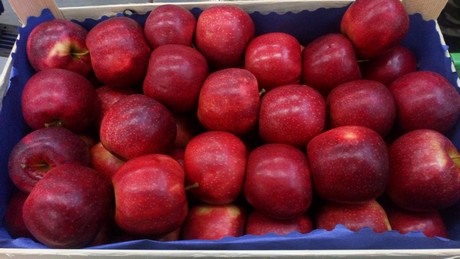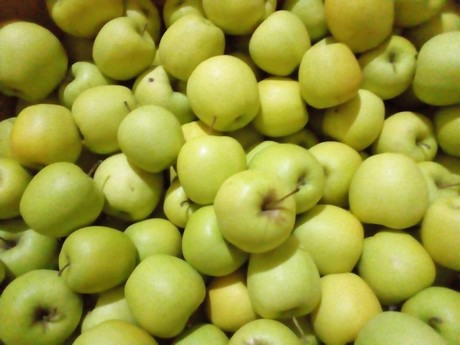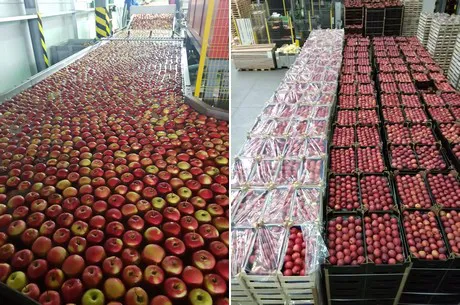The weather has not been good to Poland in recent weeks, from frosts to heatwaves to the miserable, constant rain and wind. Despite all these issues, the new season for Polish apples is almost upon us and the start is rockier than expected. Storing apples from previous season for so long has resulted in the low prices continuing into the new season.
The apple season in Poland has had some challenges well before it even started. With crippling frosts literally killing a large amount of the apples, the volumes will not be as impressive as last year. According to Mohammed Marawan, CEO of Polish apple exporter Sarafruit, the problems of last season are still dripping into the new one: “Even though we don’t have the huge volume of apples, our clients still need their apples. Luckily we still have some volume and there are actually a lot of apples from last season still available. The higher prices some of the exporters were waiting for never arrived, and I estimate there’s at least 300,000 tons of apples still stored in cold rooms. Naturally the quality of these apples is not great, as they’ve been stored for such a long time. Especially when it comes to the Champion variety, one must be careful to import or export them. They can look fine on the outside, but have rot on the inside. The quality of these apples have resulted in prices still being very low.”

The low prices for apples in this part of the season is abnormal, says Marawan. When the summer apples are about to hit the market, prices ought to be quite good for the exporters. “Apples still stored in cold rooms are responsible for current low prices, also given the quality of these apples. These prices are a problem, especially if you take into account we don’t have enormous amounts of produce available to compensate for the low prices. We still have to supply our German clients, who expect a certain amount of apples for their supermarkets.”

For Sarafruit, Egypt has always been an important market. “Egypt still import apples from Poland, however they are currently producing their own apples. So the demand is a bit lower. However, they only cultivate one variety of apple and it’s one that can hardly be stored for longer periods of time. Once their season ends, which should finish at the end of this month, the import from Poland will increase again. In Egypt they celebrate a certain feast next month, for which they require a lot of fruits on the table. Apples are a big part of that, so to prepare for that feast they will import from both Poland and Italy. Our apples will always be the cheaper option compared to the competition, though.”

Marawan thinks a shift has been happening in Poland, some farmers may find a solution for selling apples by changing the production to organic, as the demand is growing in Europe, and increase the acreage for organic or bio-apples. “We export a fair amount of organic apples to Italy and Germany. I expect Polish growers to start focusing on the organic sector, as they will find it easier to add value to the product and get a reasonable price for the produce. It also means Poland will still have a good amount of organic apples available this season. For Sarafruit, we’ll also start the plum season at the end of the month. Some of the produce will be available for export. Canada is one if the interested markets and they have requested a trial-shipment already.” Marawan concludes.
For more information:
Mohamed Marawan
Sarafruit
Tel: +48 537 935 155
Email: [email protected]
www.sarafruit.eu
